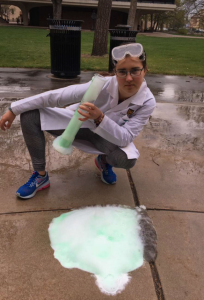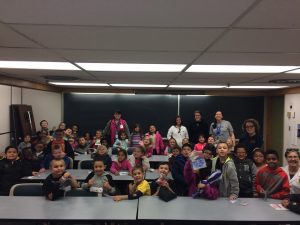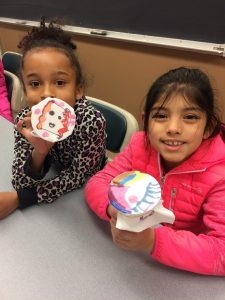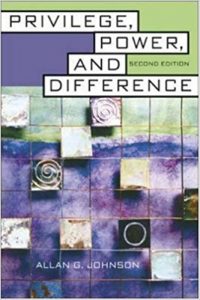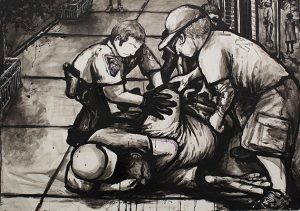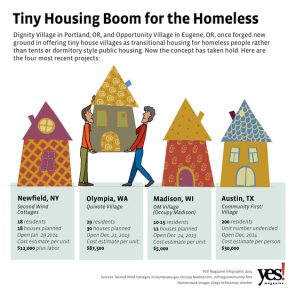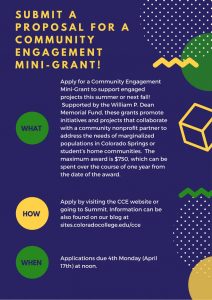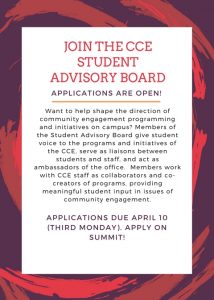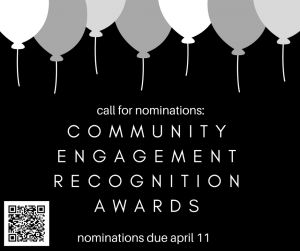On Friday afternoon, a gaggle of school children gathered in the halls of Barnes and Olin Hall for their favorite Friday afternoon activity: science labs. Making excited statements such as “I want to go here!”, the children were in awe of CC’s campus, as well as the CC students that led them through their adventures of the day. One of these students, Ines Siepmann, is a sophomore at CC and bubbles with excitement whenever speaking of Biosciences Outreach club. She wrote about Fridays event, detailing the fun the elementary schools students had.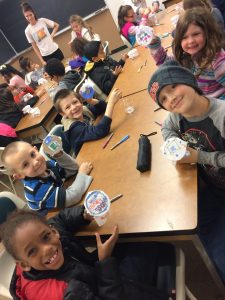
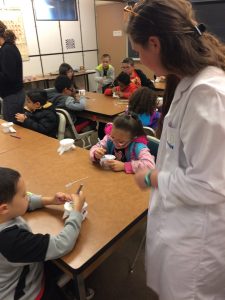
“Bioscience Outreach Club had their final two events of the year last Friday and this Tuesday, working with elementary school students from Audubon and Jackson Elementary schools, respectively. On Friday, thirty students, grades third through fifth, came to CC for a full afternoon of activities, including four different labs, some explosive and foamy demonstrations, and dinner at Rastall! All students that attended were part of Audubon’s “CC Science Club,” an after-school program at Audubon in which CC students provide lab-based science experiences on a twice a block basis Friday afternoons. This was the first time Bioscience Outreach Club had an on-campus event, and it was a wonderful adventure and success!”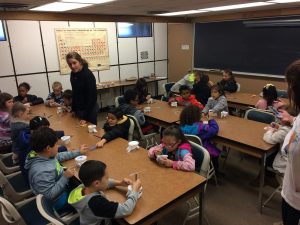
On Tuesday, fifty-five first graders from Jackson Elementary School came to campus to give them a brief depiction of what college life is like, and introducing the concept at a young age. Bioscience worked with them for an hour to show another “Elephant Toothpaste” demonstration, and to learn about basic chromatography through markers, rubbing alcohol, and fabric.”
In the pictures above it is apparent the immense engagement students had with these labs and the CC students that led them through the labs. As Biosciences continues to grow, Siepmann and her peers hope to “continue to maintain a constant, working relationship with our current elementary school, Audubon Elementary, and to continue garnering consistent and excited student commitment (both from CC students and from the elementary school students that attend). Beyond that, we’re looking at a couple different potential growth options — this year, for the first time, we’re having one large, on-campus, multi-grade-level event, which is very exciting! We’re also partnering with a second elementary school to provide a small program for their campus visit. Should we continue to grow and have invested CC students, we plan to potentially look at partnering with additional elementary schools.” 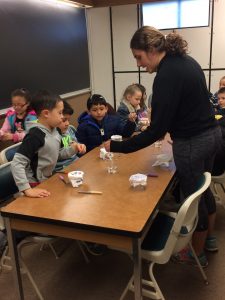
The future of Biosciences is bright as incredibly passionate and dedicated students such as Ines take the lead to expand and improve Biosciences.
